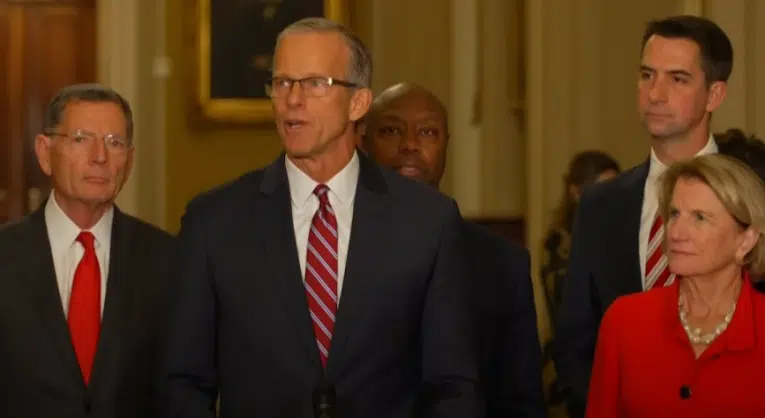By Rick Manning
If Congress is seriously interested in finding people to cut perhaps they just need to look at those responsible for producing automobile company sales projections for the year 2025. That’s right, the Environmental Protection Agency and the Department of Transportation spent your tax dollars to make up sales projections for a model year that is thirteen years from now.
Of course, this should not be surprising for the EPA which regularly creates regulations based upon speculative global warming models that project weather patterns fifty to one hundred years in the future. So, automotive industry sales projections for the year 2025 must have seemed like legitimate economic analysis after dealing in the politically driven climate guessing world for the past few years.
Not shockingly, the analysis is based upon the automakers current line-up of vehicles and their dependence upon vehicles which are likely to no longer exist if the Transportation Department’s rule increasing the average gas mileage for a company’s fleet of vehicles to 54.5 miles per gallon in 2025 becomes the law of the land.
The projections were created as part of the CAFÉ standard rulemaking process, and Automotive News quotes Jeff Schuster, senior vice president of forecasting at LMC Automotive as indicting the guesswork on two fronts noting that the report relied upon 2008 sales data making it, “a bit dated, especially given all the changes in the automotive industry over the last few years.”
Schuster continued calling any forecast that far out, “… a crapshoot,” noting, “They don’t even know what their lineup is going to be in 2025, so it’s difficult for a forecaster to know.”
The official government forecasts were not good for twice bailed out Chrysler Corporation which is projected to have a devastating 54% drop in vehicle sales.
Not surprisingly, the government sees good things for Tesla Corporation, the recipient of $465 million in low interest federal loans. In the third quarter of 2011, Tesla reports that they sold 184 of their $109,000 Roadsters, fewer vehicles than the Chevy Volt.
However, in 2025, the crystal ball gazers in the federal government estimate that Tesla will sell 31,974 vehicles, not 31,000 or 32,000 vehicles, but 31,974 little Tesla electric cars will be buzzing around terrorizing the deaf who can’t hear them coming.
Of course, if private bankers believed that Tesla had this kind of massive upside, they would not have had to rely on taxpayer loans to build their manufacturing facilities, so it is reasonable to assume that like Solyndra, the projections of success may be more driven by the hoped for outcome rather than any real market analysis.
Now, a cynical person would believe that the stunningly unreachable CAFÉ standards set for 2025 are less based upon any real expectation that conventional combustion engines will be able to be tweaked to achieve them and more from a social policy desire to force internal combustion engines off the road all-together.
If this is the case and the standards survive, perhaps Tesla is a good investment bet for the future. After all, they are basing their electric engine on 1885 technology and claim a range between charges of around 300 miles. This is compared to the fire-prone Chevy Volt which suffers from an electric charge limitation of 40 miles.
The list below provides the 2025 sales projections released by the EPA and the Department of Transportation.
Obviously automakers, perhaps even new automakers with better, cheaper technology, will bring new vehicles to the market that make these predictions useless from a practical perspective, but reviewing the list is a revelation of the biases of the agencies and their researchers, and that in itself is instructive.
From Automotive News:
Feds’ projections for auto sales
The EPA and Department of Transportation include future sales projections for each automaker in the agencies’ proposal for tougher 2017-2025 fuel economy standards released in November. The annual sales estimates are based on data provided by the Department of Energy and outside forecasting firm, CSM Worldwide.

Rick Manning is the Communications Director of Americans for Limited Government






